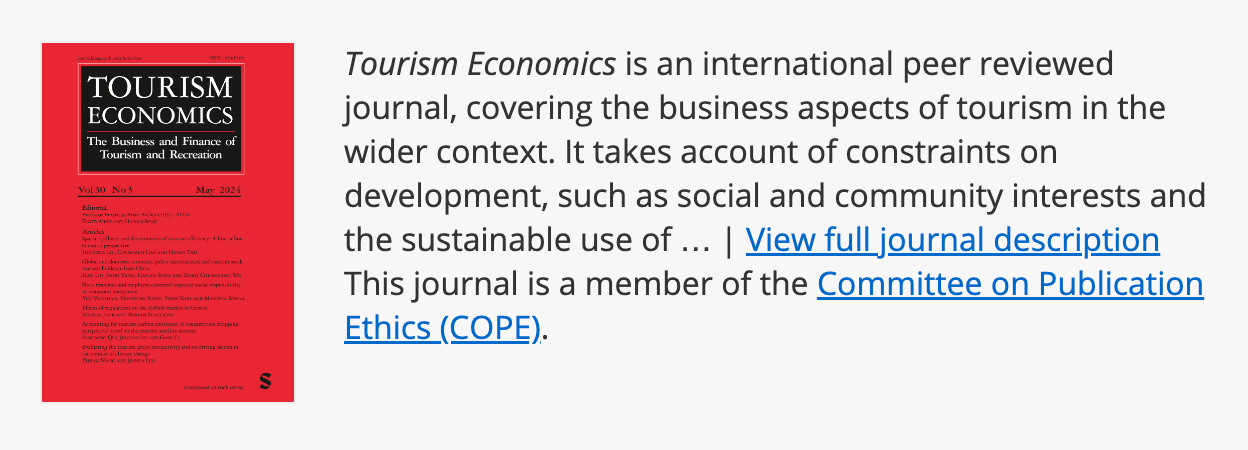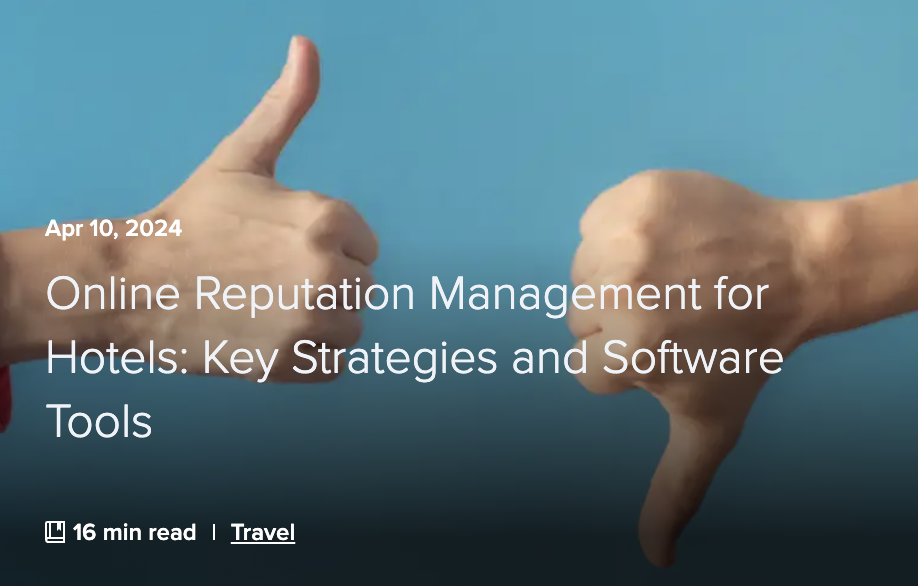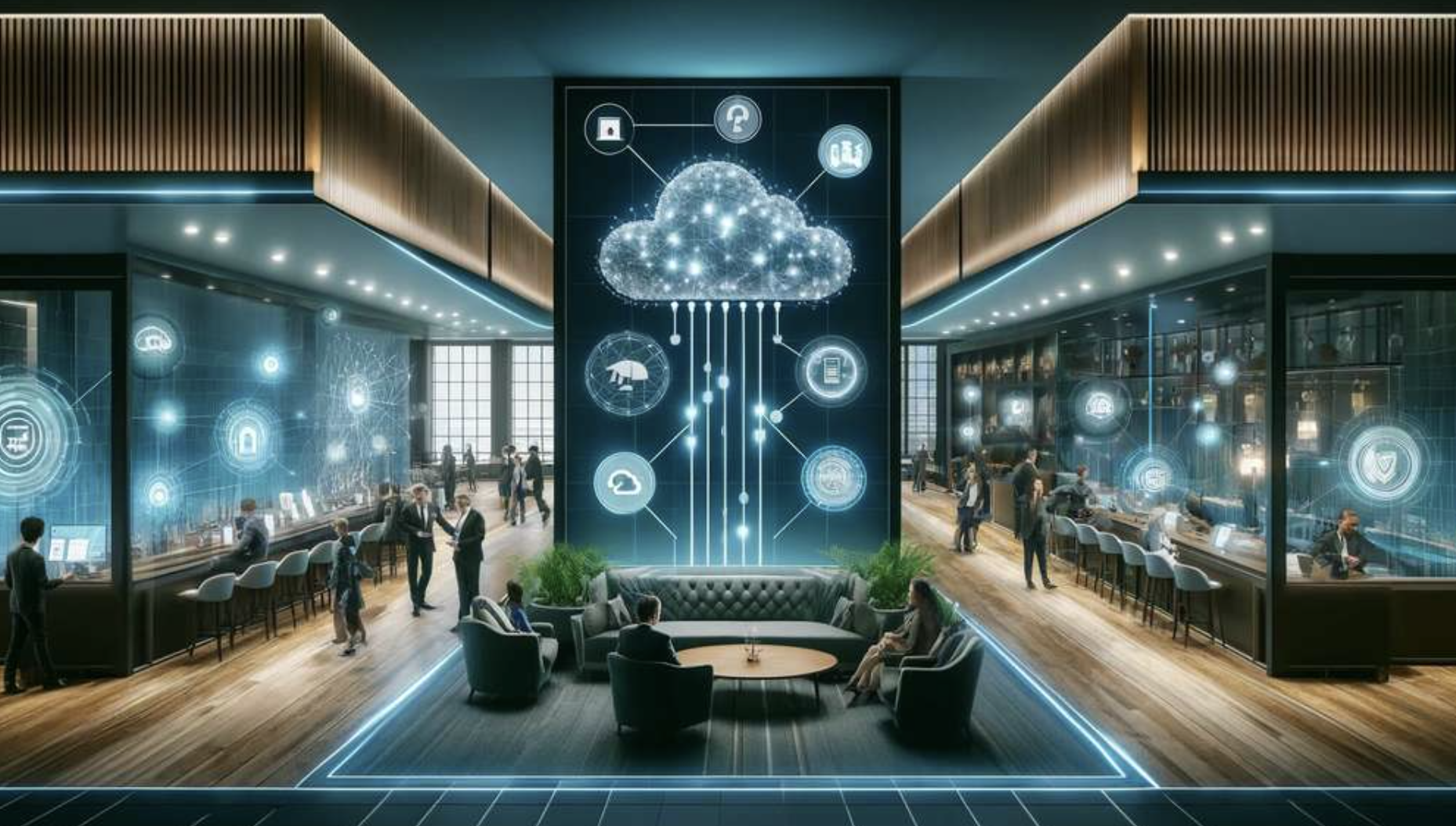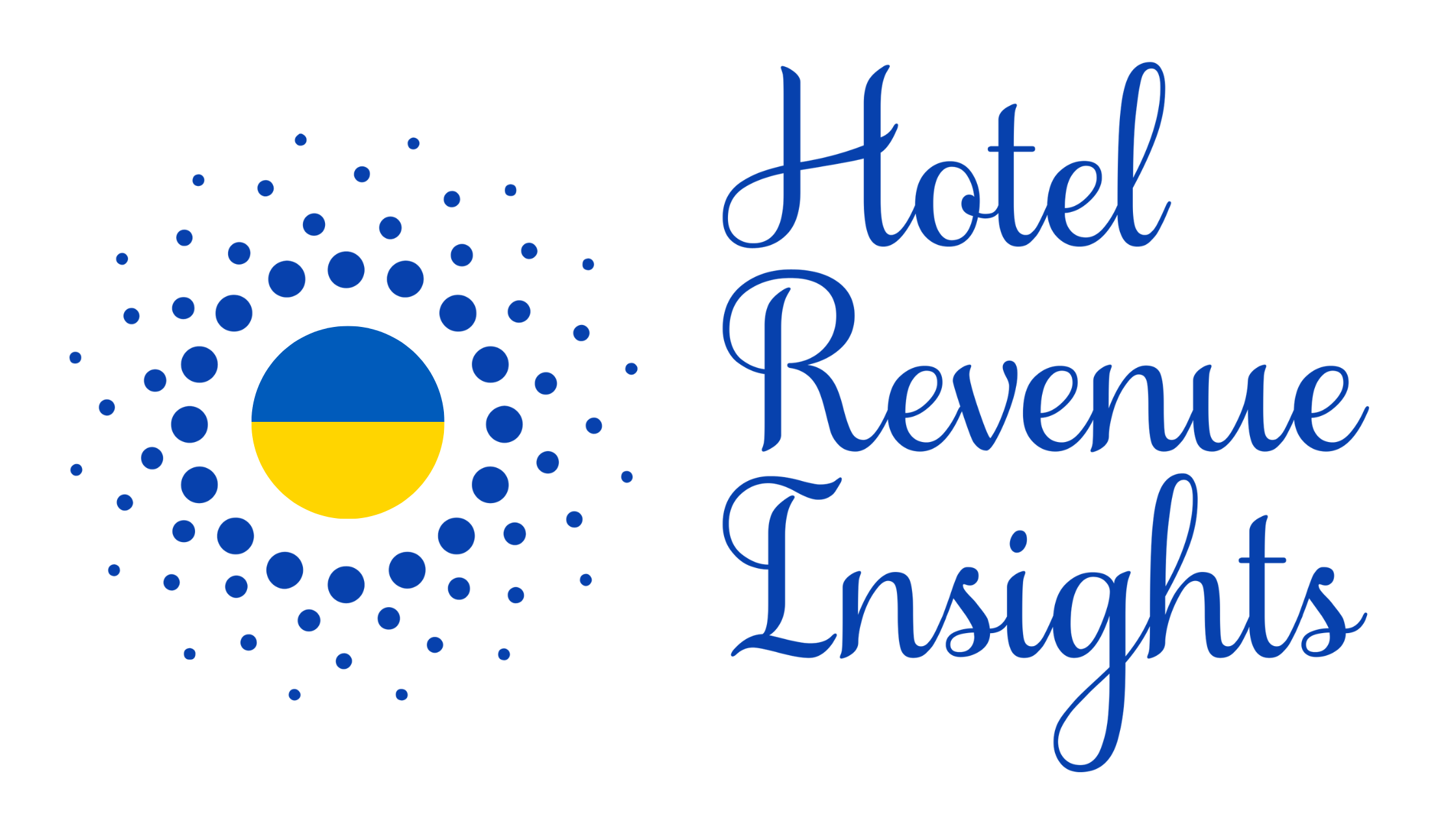
Weekly Insights. April 13, 2024
Best hospitality industry articles focused on 💵revenue, 📊markets, and 🎯strategy (Apr 7 - Apr 13, 2024).
The future of luxury experiences: Where luxury meets hospitality
The luxury industry is undergoing a phase of transformation. While in the past few used to buy luxury items, many more people are now spending their money on high-end brands. Evidence of this can be seen, for example, with the French fashion house Hermès. The market value of Hermès was $199 billion at the end of August. That's over 28% more than the $155 billion Nike brand. Of course, Hermès products are much more expensive, but Nike is a very popular brand and most people have a Nike T-shirt, pair of sneakers or gym bag in their wardrobe. Obviously, luxury brands are reaching more and more people today. One reason, among other things, is that consumers of luxury goods are becoming younger and younger.

Unlocking hyper-personalization: 5 strategies for leveraging first-party data in hospitality
Hyper-personalization is a comprehensive understanding of individual preferences, behaviors, and expectations, empowering hotels to not only meet but surpass guest expectations throughout the customer journey. Hotels are now leveraging first-party data, advanced technologies, and automation paired with a balance of human touch and cross-team collaboration to tailor email marketing, loyalty programs, and on-property communications to achieve hyper-personalization. This data-driven approach is reshaping the future of the hospitality industry and may be a key to sustaining customer loyalty. I discussed this with my peers in the HSMAI Rising Marketing Leaders Council meeting recently. Here are our 5 takeaways.

Business travel is back, but corporate customers are more demanding than ever
It’s been a long time coming, but business travel has just about reached its pre-pandemic revenue levels. This is great news for the industry and the economy. However, the face of business travel is totally transformed. There are rapidly changing company policies on business travel, scrutiny on sustainability and employee wellbeing, and a constantly moving supply chain. Delivering business travel that ticks all the right boxes presents the biggest challenge yet.

5 hotel digital marketing strategies to boost direct bookings
Hotel digital marketing strategies are crucial to grow direct bookings reduce dependency on intermediaries. As consumer attention spans dwindle and behaviors shift towards a more personalized booking experience, hotels are tasked with not only managing day-to-day operations but also standing out in a crowded digital landscape.
Recent studies indicate that a significant majority of travelers prefer personalized experiences during their travel journey. A report by Travel Daily News in 2023 revealed that 85% of travelers are more likely to book with hotels that offer personalized experiences from the research phase to post-stay. This highlights the importance of hotels adopting digital marketing strategies that cater to individual guest preferences.

Beyond accuracy: The advantages of the k-nearest neighbor algorithm for hotel revenue management forecasting
Revenue management (RM) systems forecast demand and optimize prices to maximize a hotel’s revenue. The RM function operates in coordination between a system and an analyst. Systems provide recommendations while analysts review the forecasts and prices to approve or make subjective adjustments. In many cases the recommendations are a “black box” with little insight regarding how recommendations are derived. This article proposes the k-Nearest Neighbor (k-NN) algorithm as a forecasting approach that can transition the “black box” to a “glass box.” The benefits of the k-NN are discussed in detail and compared with neural networks. The analysis is conducted on 35 hotels in partnership with a leading RM service provider. The results indicate similar performance for both techniques, leading to an important discussion on model evaluation outside of accuracy. In particular, the article discusses some of the unique advantages k-NN provides for the RM discipline.

Online reputation management for hotels: Key strategies and software tools
In today’s world, what people say about a hotel online can really affect its success. Whether it’s a glowing review or a critical comment, these opinions shape how other travelers see the hotel. That’s where hotel reputation management comes in. It’s all about paying attention to what guests are saying online and using that information to make the hotel even better.
In this article, we’ll explore how hotels can maintain a good name, discuss the key operational strategies, and look at software tools that support them.

Synching RMS, CRS, and distribution for pricing precision
You have the best pricing strategy in place. You have even implemented pricing automation. Last edition we talked about it. The power or AI; Machine learning and how it is imperative to maintain market share and profitability. Having a powerful RMS is not enough. You also need a reliable central reservation system (CRS) that can distribute your rates and inventory across all your online and offline channels, ensuring consistency and accuracy. Without this integration, you risk losing revenue opportunities, creating customer dissatisfaction, and wasting time and resources. In this edition, I will share why it is important to harmonize your tech stack and ensure that your RMS and CRS are working in tandem to optimize your revenue strategy.

Follow on LinkedIn




